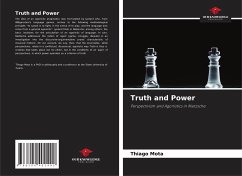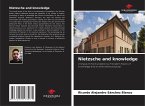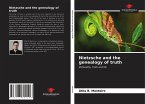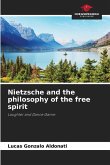The idea of an agonistic pragmatics was formulated by Lyotard who, from Wittgenstein's language games, arrives to the following methodological principle: "to speak is to fight, in the sense of to play, and the language acts come from a general agonistic". Lyotard finds in Nietzsche, among others, the basic intuitions for the articulation of an agonistic of language. In turn, Nietzsche addresses the notion of 'agon' (game, struggle, dispute) in an investigation into the discursive-argumentative praxis characteristic of classical rhetoric. On our account, we say, then, that the enunciates, while perspectives, relate in a conflictual, dissensual, agonistic way. Truth is thus a creation that takes place not 'ex nihilo', but in the conditions of an 'agon' of perspectives, in which power operates as a criterion of truth
Bitte wählen Sie Ihr Anliegen aus.
Rechnungen
Retourenschein anfordern
Bestellstatus
Storno








